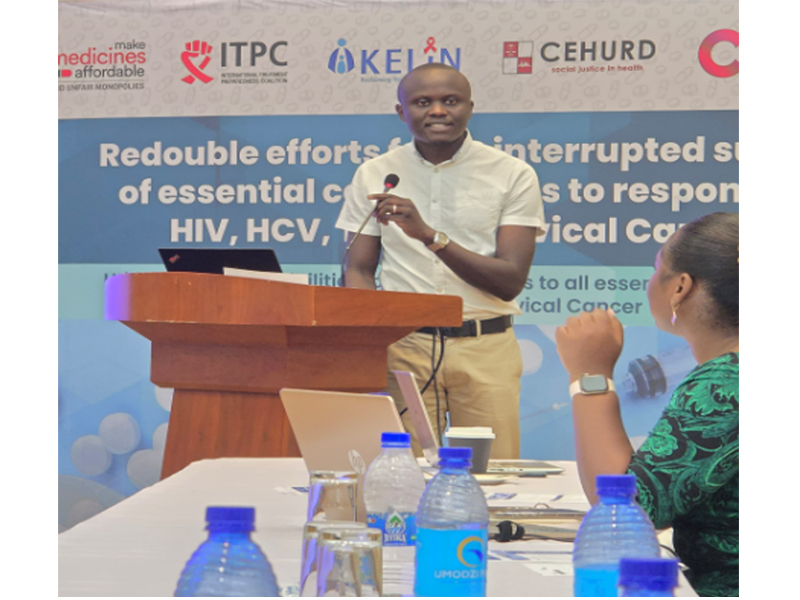On 27 January 2023, the Supreme Court of Kenya made its first decision on division of matrimonial property in the case of Mary Nyambura Kangara alias Mary Nyambura Paul v Paul Ogari Mayaka (PT. No. 9 of 2021). The court was called upon to determine whether parties to a union arising out of cohabitation and/or in a marriage unrecognized by law can file proceeding for distribution of property acquired during the subsistence of such a union.
Admitted as amicus curiae on 19 May 2022, Initiative for Strategic Litigation in Africa (ISLA) made submissions to the court on the need for the recognition and protection of cohabitation relationships as family forming unions. ISLA demonstrated to the Court that families are formed differently and there are instances where parties have voluntarily lived together for a long period of time, with neither a marriage nor intention to marry, but had acquired property together, therefore needed to be accorded similar protection as with recognized marriages.
ISLA submitted to the court on its obligation to develop and extend the application of Article 45 of the Constitution and the right to equality to the property rights of parties in cohabitation unions; in order to ensure equitable share of property acquired jointly, during the subsistence of an unrecognized or unregistered union arising out of long cohabitation.
Agreeing with the amicus curiae on the issue of parties being capable of cohabitating for a long period of time with the express intention that their cohabitation does not constitute a marriage; and relying on the authorities provided by the amicus curiae, the Supreme Court observed that; “marriage is an institution that has traditional, religious, economic, social and cultural meaning for many Kenyans. However, it is becoming increasingly common for two consenting adults to live together for long durations where these two adults have neither the desire, wish nor intention to be within the confines of matrimony. This Court recognizes that there exist relationships where couples cohabit with no intention whatsoever of contracting a marriage. In such contexts, such couples may choose to have an interdependent relationship outside marriage. While some may find this amoral or incredible, it is a reality of the times we live in today.”
The Court, to this end, found that interdependent relationships outside marriage over the past few decades have become so pervasive and that no inferences about marital status can be drawn from living under the same roof. The impact of this is therefore the acknowledgement of the fact that families are formed differently even through unions that are not registered or recognized by law, but which function as family forming unions, in need of recognition and protection by the law.
Further, and on the recommendation made by ISLA, the Court recognized the current lacuna in the legislative framework to recognize and protect the rights and interests of parties in family forming unions arising out of cohabitation relationships that do not amount to a marriage. As a result, the Court called upon Parliament in collaboration with the Attorney General to formulate and enact a statute that deals with cohabitees in a long-term relationship, their rights and obligations.
Finally, the court in its decision, considered the issue of division of property acquired during the subsistence of the union. In doing so, the Court drew a distinction between the application of Married Women Property Act of 1882 (MWPA) and the Matrimonial Property Act of 2014 (MPA) and held that; firstly, MPA did not have a retrospective application to cases filed before it was enacted. Secondly, MWPA applied ‘to parties in a marriage and married women’. Accordingly, parties to a union arising out of cohabitation or a marriage unrecognized by law could file proceedings under MWPA on the basis that it did not distinguish between marriages recognized and unrecognized by law. Therefore, the court held that MWPA applied to all marriages.
In the end, factually, the Supreme Court found that there was neither a marriage nor a cohabitation relationship between the parties in this case. Consequently, the court did not deal with the issue of proprietary interests for such intimate relationships formed through long cohabitation. Accordingly, the court was of the view that ordinary laws governing property rights between strangers was applicable. It therefore proceeded to quantify the beneficial interest due to the parties based on their direct financial contribution to the acquisition of the suit property while acknowledging other forms of non-monetary contribution to the property such as actions of the parties in maintaining and improving the property.
This judgment is important to the development of the law and jurisprudence on the basis that the Supreme Court set out to develop guidelines that the proposed new legislative framework will need to take into account when seeking to determine whether a cohabiting relationship exists and the consequences of the existence of such a relationship.
Welcoming the decision, ISLA’s Executive Director, Sibongile Ndashe said, “the Supreme Court decision speaks to the lived realities of many women, who enter into cohabiting relationships or other unregistered unions and who often have found themselves without legal recourse in claiming a share of property when such unions break down or come to an end. One of the obligations of strategic litigation is to remove legal uncertainty, there is need for a regulatory and legislative framework that determines the interests, rights and obligations of parties in such unions.”
In this case, ISLA was represented by Nyokabi Njogu, Legal Counsel, KELIN one of the network lawyers of the Feminist Litigation Network (FLN).
End.
For more information or enquiries contact:
Nyokabi Njogu
Kenya Legal and Ethical Issues Network on HIV & AIDS (KELIN)
Karen C, Kuwinda Lane, Off Langata Road
PO Box 112 – 00202 KNH
Tel: 0790 111578
Email: litigation@kelinkenya.org
NAIROBI
Carolene Kituku
ISLA Women’s Socio-economic Rights Lawyer
Email: Carolene@the-isla.org
Phone: +254720467396


